Massive hair loss after pregnancy hit me with double force because I simply did not see it coming. I had never heard that women could suffer from excessive hair shedding after having a baby. I was so focused on taking care of my newborn: breastfeeding, recovering after the birth and coping with the postpartum depression, that I did not perceive at first what was happening on my own head. About two months after giving birth, when I physically shook off childbirth, my hair started to fall out at warp speed and there was nothing I could do to prevent it. My hair was absolutely everywhere: on the floor, in my bed, on the sofa, under the shower. At first I didn’t bother much because I’ve always had very thick, curly and long hair, but after a few months I noticed that there was much less hair on my head and nothing foreshadowed its regrowth. I personally lost most of my hair on the frontal scalp hairline which was extremely visible after couple of months. I was devastated.
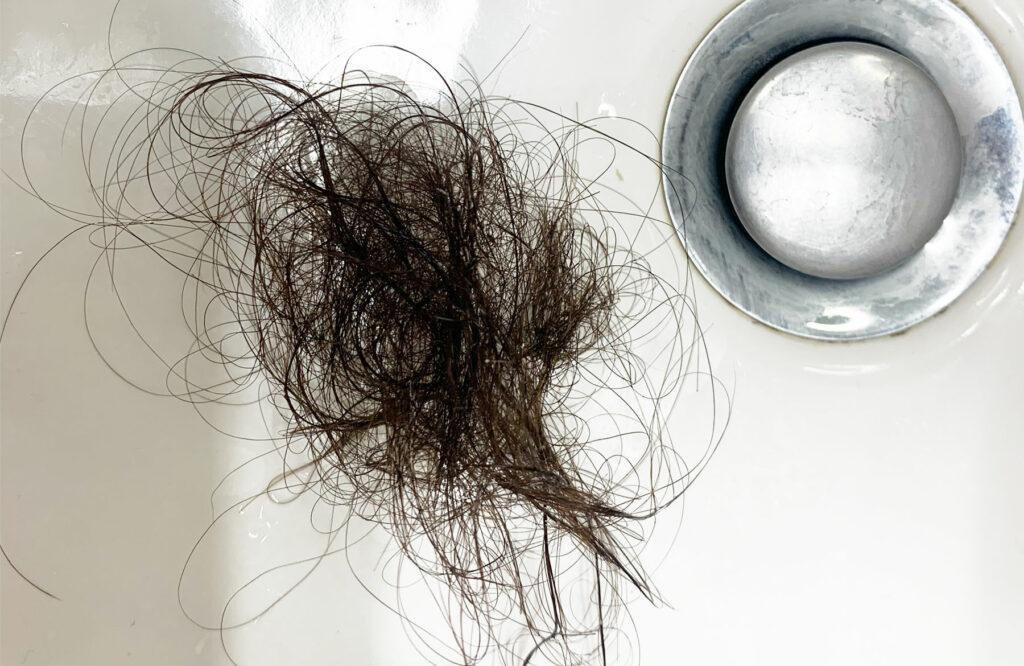
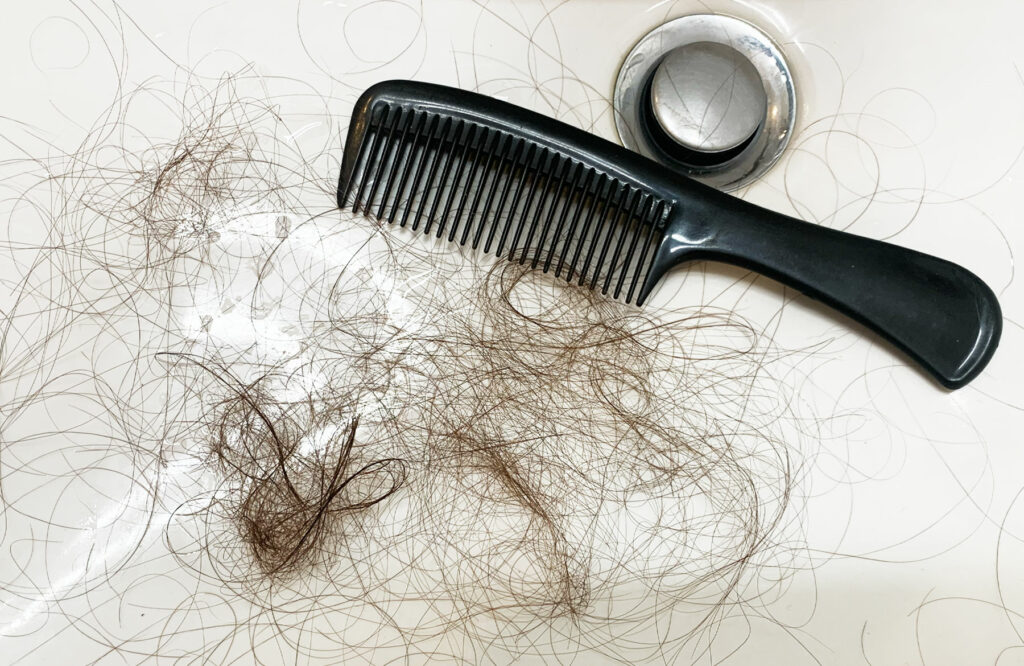
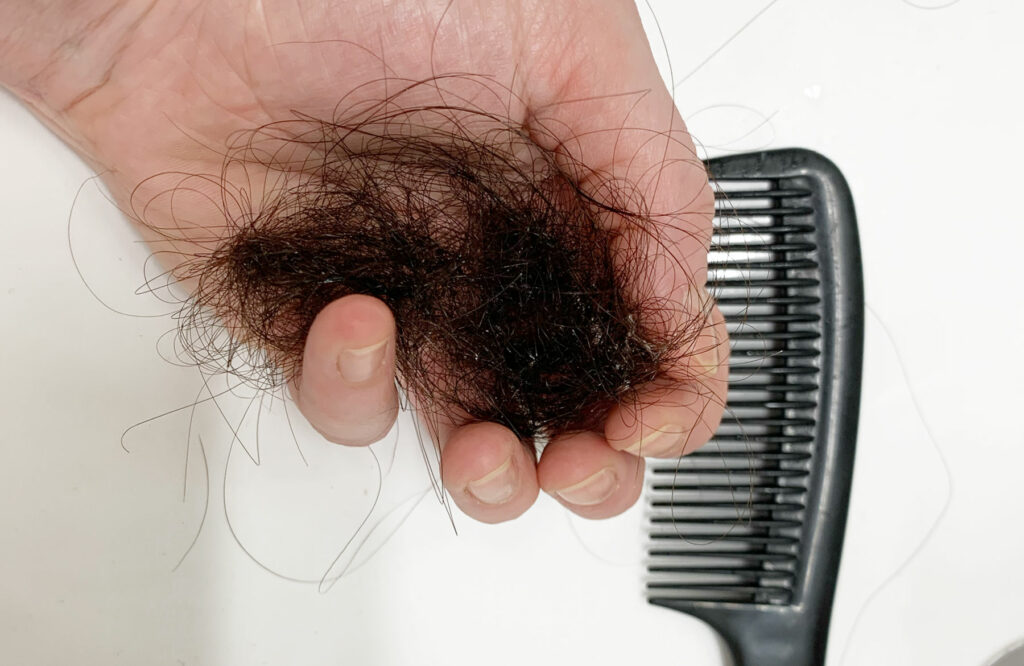
Since I was still breastfeeding, I was very careful with my diet, I was taking postnatal vitamins for breastfeeding mothers and I was moving a lot. I was convinced that the balanced diet, nutritional supplements, healthy lifestyle followed by a the natural hair treatments would protect me from loosing my hair but nothing was helping. Special shampoos, hair conditioners, gentle hair brushing were making no difference either. I will never forget the feeling of helplessness when I pulled out handfuls of long hair after the shower. In my case, the hair loss continued for more than 2 years after the birth of my daughter. After about a year, however, my hair tentatively began to grow back, but it took another year for it to regain its former density. That means, my daughter is almost 3 years old now and half of my head is covered with long but fine and very thinned hair and the other half has short but thick chin-length hair.
Personally, losing my hair contributed to exacerbating my already low self-esteem. Not only was I fighting the demons of postpartum depression (which certainly had a negative impact on the state of my hair), I was also struggling with the overall appearance of my body burdened by pregnancy and childbirth. I felt unattractive and invisible. When I noticed the loss of my hair, I became terribly upset. “What other surprises await me during the postpartum period I did not know of” I thought to myself. I was furious. Once again I felt like some information was kept away from me. Even though I am aware that there are worse things than a hair loss problem, I would like to be better informed to simply prepare for it mentally.
The good news is that, despite two years of hair struggle, I have finally got my hair back. The excessive hair shedding did self-resolve over time. I don’t know if the hair regrowth was supported by balanced levels of estrogen and progesterone hormones, hair treatments, postnatal supplements or my better state of mind, but today my hair finally looks good again. I guess this less glamorous postpartum experience has taught me to appreciate my body more and stop taking my looks for granted.
Why was I losing my hair?
According to the Cleveland , during pregnancy we experience an increase of estrogen and progesterone hormones, which makes our hair stay longer in the growing phase, so less hair falls out than usual. It feels like our hair is thicker and fuller. “You typically have 80,000 to 120,000 hairs on your scalp and shed up to 100 hairs per day. In postpartum hair loss, you lose more than 100 hairs daily.”1 That means after pregnancy a decrease of estrogen and progesterone hormones causes hair shedding, which usually peaks about four months after giving birth and may take up to one year after your child is born. In other words the change in hormone levels, sleepless nights, breastfeeding and often poor nutrition that accompany early motherhood causes physiologic stress to the system which is not helping your hair to grow back.1
What can you do when you cannot do anything?
Even though the excessive hair shedding after pregnancy is known to be a temporary problem, for which there is no “cure”, The American Academy of Dermatology Association2 recommends the following treatments:
- Usage of volumizing shampoo
- Usage of conditioner formulated for fine hair and applying this conditioner primarily on the ends of your hair
- Avoidance of “conditioning shampoos”
- Avoidance of “intensive conditioners”
- Trying out a new haircut to make your hair appear fuller
In addition Healthline3 and Penn Medicine4 recommend:
- Avoidance of hair styling with hair dryer, strainer or curling iron
- Balanced diet full of fruits, vegetables, and healthy proteins
- Intake of prenatal/postnatal vitamins especially if you are still breastfeeding
Have you experience hair shedding after your baby was born? How long did it take? How did you cope with that problem and how did it make you feel? Help us to better understand the postpartum hair loss problem and share your experience with other women.
References :
- https://my.clevelandclinic.org/health/diseases/23297-postpartum-hair-loss
- https://www.aad.org/public/diseases/hair-loss/insider/new-moms
- https://www.healthline.com/health/parenting/postpartum-hair-loss
- https://www.lancastergeneralhealth.org/health-hub-home/motherhood/fourth-trimester/the-truth-about-postpartum-hair-loss
Further reading :
- How to tell the difference between hair loss vs hair shedding?
- Postpartum Female Sexual Function: Risk Factors for Postpartum Sexual Dysfunction
Did you like this article?
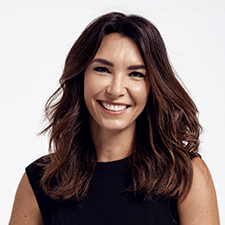
Meet the Author
Ewa Gillen, co-founder of No Taboo Mom, is a Polish Berliner, creative professional, wife, and mom whose journey into motherhood turned everything around. She holds a Master’s degree in Creative Industries, and having studied, lived, and worked in Poland, Germany, Canada, Australia, and Spain, Ewa brings a rich cultural perspective to her work. As the founder of Gillen Design, she has worked as an Independent Creative Professional for nearly a decade, blending her expertise in design with her passion for meaningful storytelling. “No Taboo Mom is more than a platform—it’s a movement to inspire change through real, open conversations. I believe that by sharing our truths, we create a stronger, more compassionate world for ourselves and the next generation.”
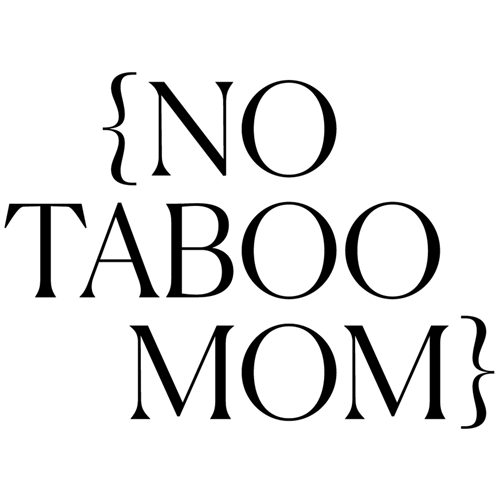
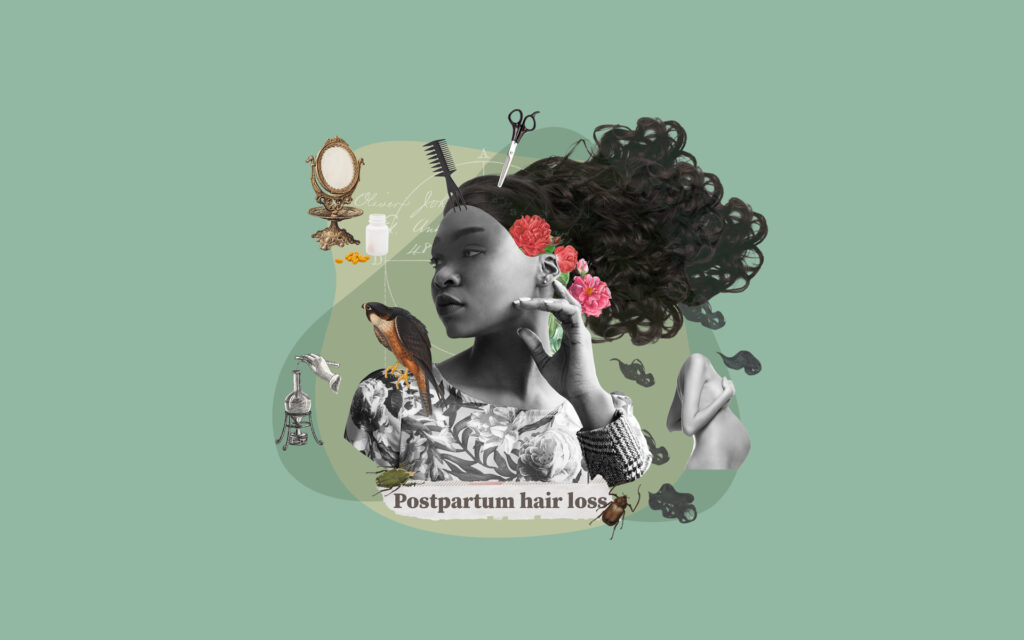
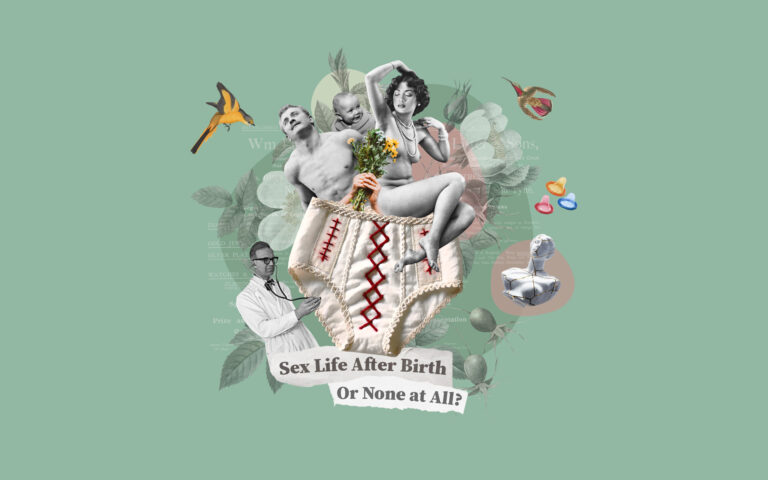
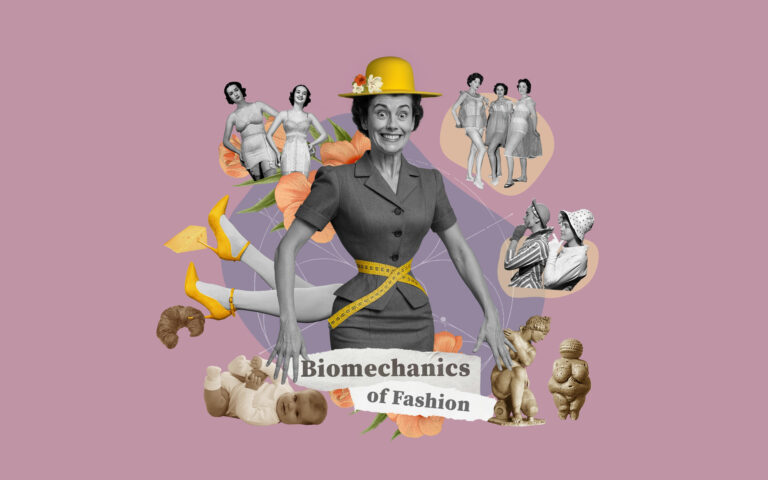
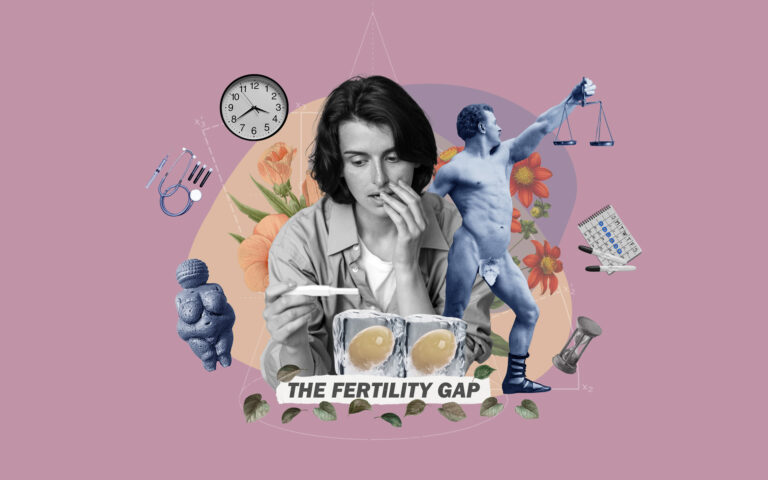
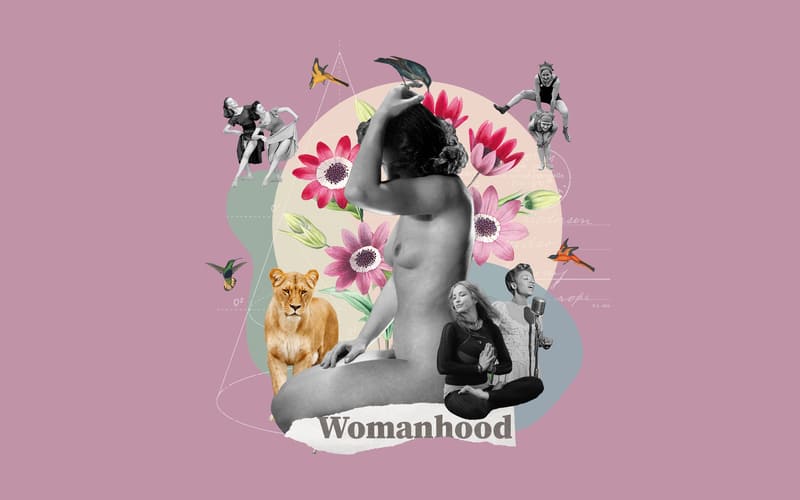

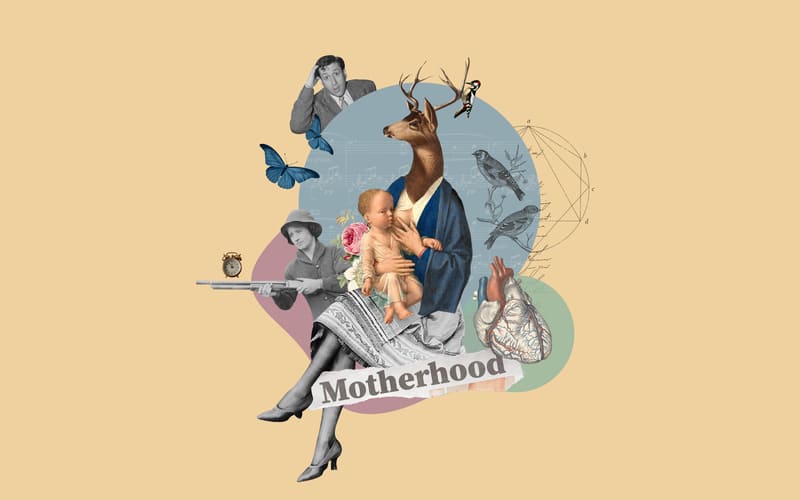
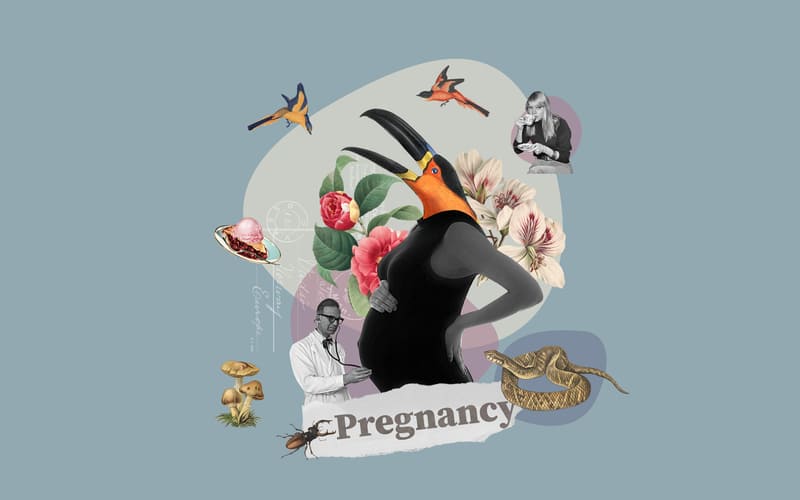
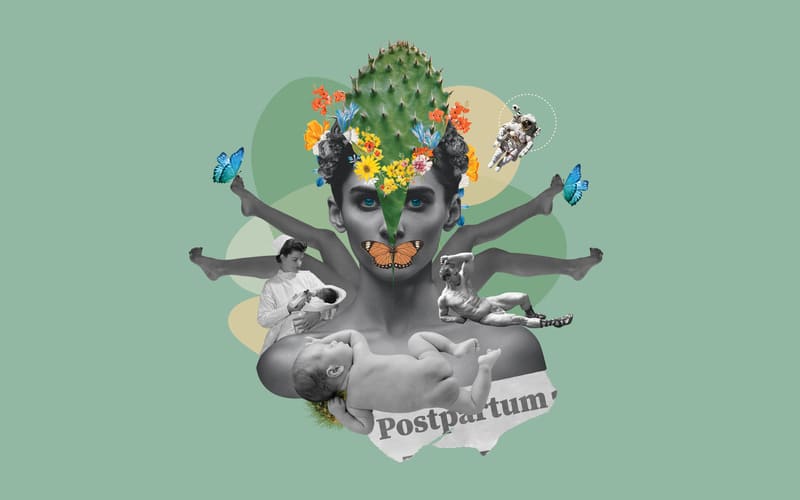
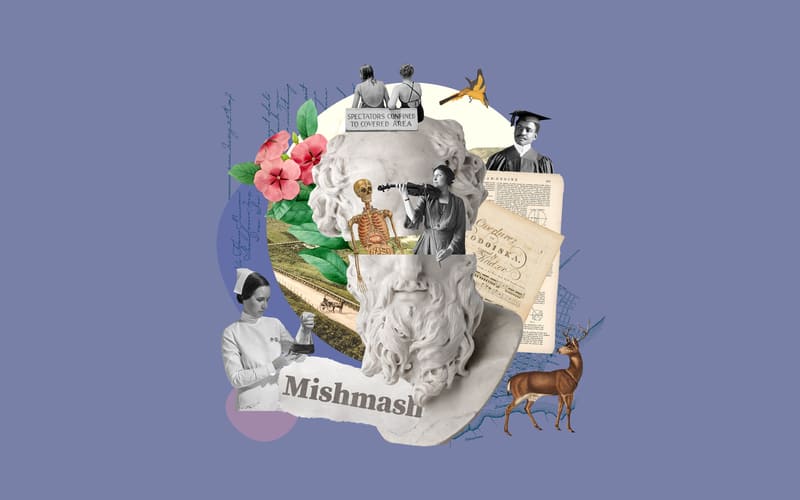
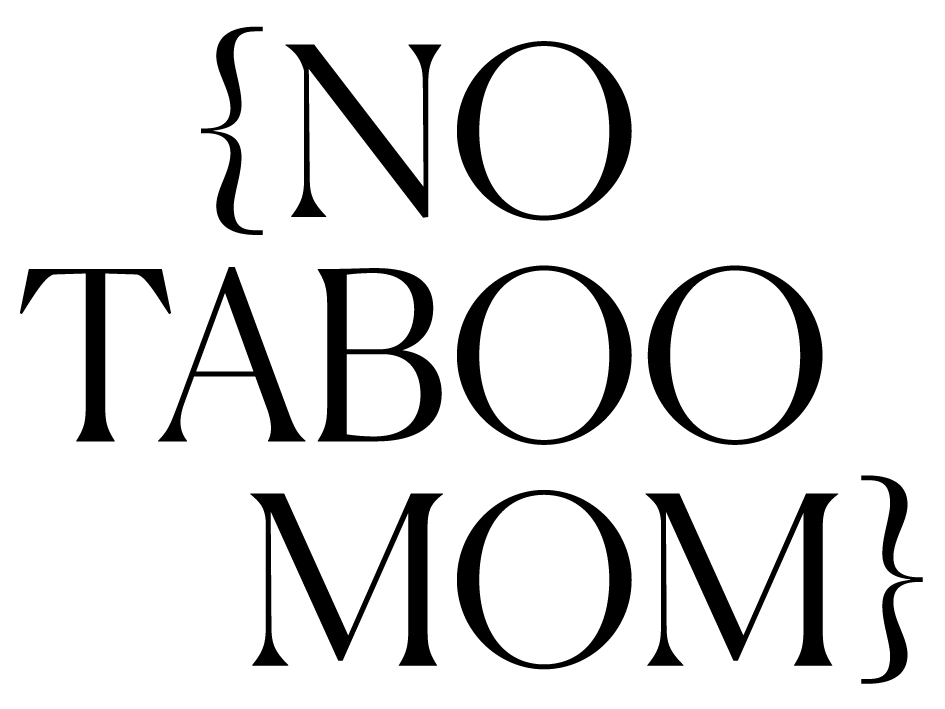
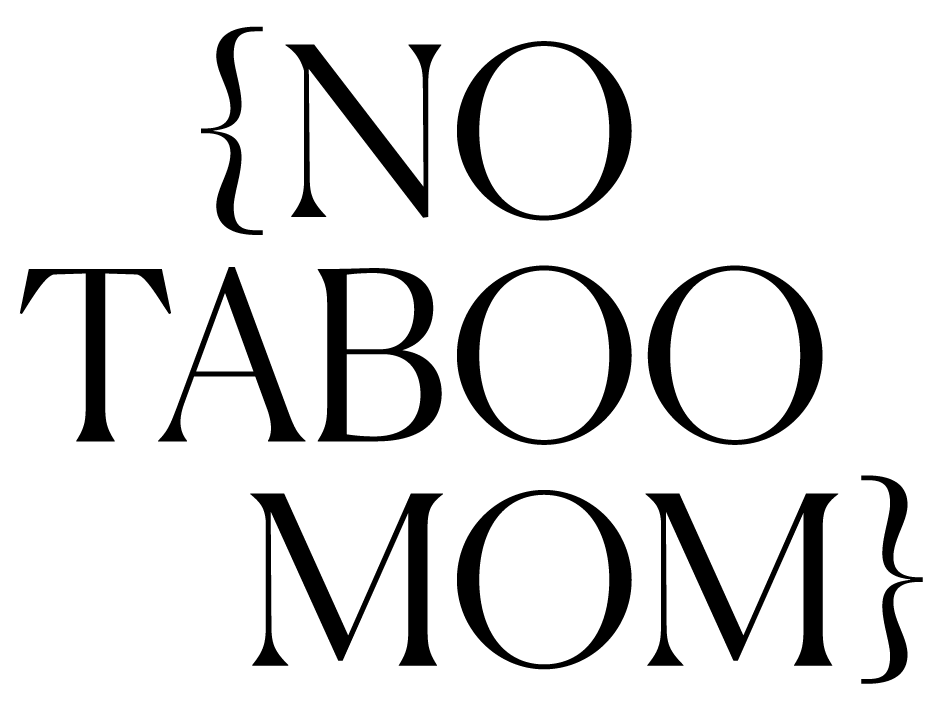
It has been nearly five months since I gave birth to my sweet baby girl. We are a good team now and our everyday life is working very well. So in the morning, while she is sleeping, I manage to have a little bit of time for myself in the bathroom: I wash my face, brush my teeth, put in my contact lenses. Finally I open my hot Mom Bun and start to brush my hair. I brush and brush and I see there is loose hair everywhere. My brush is full of hair. The sink is full of hair. I comb my hair with fingers and even more hair come out in handfuls.
The next days and weeks are the same. Every morning the amount of the lost hair is devastating.
I knew hair loss was a thing after pregnancy. But this amount? When I researched this issue online, I found many other moms that had the same problem, I found all kinds of advertisements for hair treatments, hair transplantation, medical advice, bald headed pictures..
I was very upset. After getting through weight gain during pregnancy, gaining tiger stripes and getting saggy breasts after breastfeeding, I thought at least my hair would look fine at the end.
But don´t you worry just yet. It will stop eventually- at least after my first child it did.
Nationality: Berlin
Number of children: 2